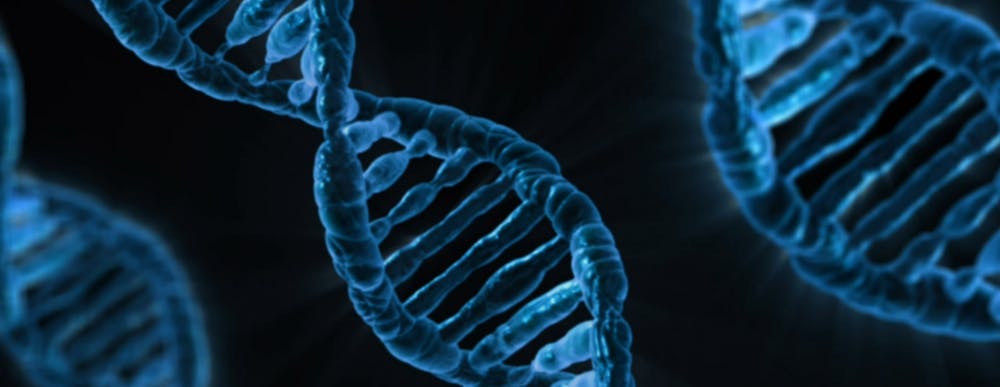It has long been known that some diseases are genetically inherited.
For example, sickle cell anemia is caused by a single mutation at a specific point in a gene responsible for hemoglobin. Having two copies of this mutated gene guarantees the disease. However, the relationship between one’s genes and disease is not always direct.
Only about 10 percent of all breast cancers occur in women with mutations in the BRCA1 or BRCA2 genes, but women with either of these mutations are estimated to have up to a 70 percent chance of developing breast cancer in their lifetime.
These mutations are not necessary nor sufficient for breast cancer, yet they still confer a very high risk.
With new technology, genotyping has become more accessible than it was in the past.
Companies such as 23andMe and Ancestry offer genetic testing and can analyze natural variations in our genome, called polymorphisms, to give information about family history.
Polymorphisms appear at millions of points in our genome, and most are entirely harmless.
Yet researchers are finding associations between certain polymorphisms and risk of a wide variety of diseases through genome-wide association studies (GWAS).
Particular associations are very slim, with odds ratios close to one.
But summing up these risks across hundreds or thousands of polymorphisms using statistical models can paint a more complete picture.
Using a “polygenic risk score,” genetic testing companies claim they can predict consumers’ risk for many diseases.
Dash Genomics offers risk assessments for Alzheimer’s disease.
Some of 23andMe’s health reports for diseases such as celiac disease, G6PD deficiency and Parkinson’s disease have been previously approved by the Food and Drug Administration, and the company has recently developed a report for type II diabetes.
Yet many experts are skeptical about the accuracy of these commercial genetic health tests. A 2018 study published by researchers at the Georgia Institute of Technology in Genome Biology explored some potential biases that can affect polygenic risk scores.
They found that because many GWAS use European samples and exclude certain groups in the population, polygenic risk scores can be inaccurate when applied to other populations.
Still, as research improves, polygenic risk scores can give valuable insight into one’s health risks. Knowing your risk of developing an illness can be beneficial for a number of reasons.
Those who are more high-risk might be more attentive to symptoms and catch a disease earlier in its progression.
For diseases like type II diabetes, in which lifestyle factors have a big impact, high-risk individuals may engage in more positive health behaviors, such as regular exercise.
For some other diseases, like Alzheimer’s, no cure or effective treatment exists at this time.
Some may prefer to know their risk, while others are more comfortable not knowing.
In an interview with The News-Letter, Harrison Riggott, a junior majoring in mechanical engineering, shared his experience taking a genetic test.
“I feel like there is no harm in knowing what your risks are,” Riggott said. “I elected to receive my genetic health information because I can now take the necessary preventative measures to live a healthier life; and as this technology improves, we as a society can all live healthier lives.”





